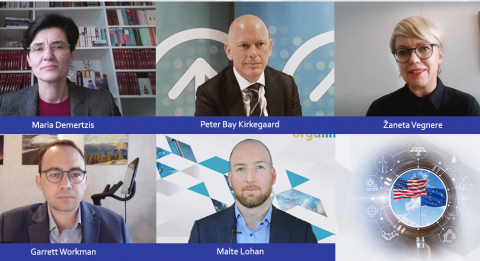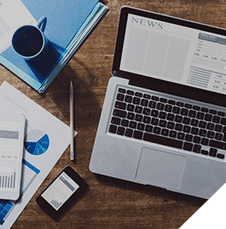(Re)making friends – Rebuilding the transatlantic relationship
22 March 2021

Much hope, hype and high expectations are in the air about renewing the transatlantic relationship now that the Biden administration has its feet under the table. But smoothing the fractured relations after four years of Trump trade policy and a pandemic may yet prove challenging. Where will expectations and reality meet? This was the big topic of debate at Orgalim's latest, and very timely, Industrial Strategy in Focus event last Thursday, taking place as part of EU Industry Week in between the publication of the EU's Trade Policy Review and the updated Industrial Strategy and just a day after Katherine Tai was confirmed as the US Trade Representative.
It is not just expectations but also the stakes that are high, as Orgalim Director General Malte Lohan observed, setting the scene. "Transatlantic trade is a growth engine, not just for our industries, but for the wider European economy" and so vital for the recovery from the pandemic. At the same time the multilateral trading system is facing unprecedented stresses and is badly in need of champions. So how to move forward and 're-make' friends?
Firstly, it was clear from the high-level speakers on both sides of the Atlantic that the enthusiasm for renewing ties is there, fuelled by the recognition that the US and Europe are stronger together where they share objectives. "I think that the US and Europe face very similar challenges," said Zaneta Vegnere, Deputy Head of Cabinet for Valdis Dombrovskis, Executive Vice President of the European Commission, noting that the EU's determination to recover from the pandemic without leaving anyone behind appears to align with the US narrative of building back better. And as she pointed out, "we already see that trade is part of an answer to coming out of the crisis because we see that export markets that are recovering are also boosting the recovery. So we need more trade, not less, in the context of recovery." She also highlighted the desire to cooperate on China where she suggested "we share many concerns", as well as on climate and on emerging technologies.
Two insightful polls and many questions from the over 120 attendees fuelled the discussion on these big, strategic questions, underlining the timeliness and urgency around the topic acknowledged by all.
If you missed the debate, you can watch a summary of the session below or by clicking here.
Join us also for the next event in the European Industrial Strategy in Focus series, on Enabling the next generation of global technology leaders, set to take place just days after the updated Industrial Strategy is published.

LATEST NEWS
How can we create a dynamic, competitive European high-tech manufacturing base?
Orgalim's key recommendations offer policymake...
